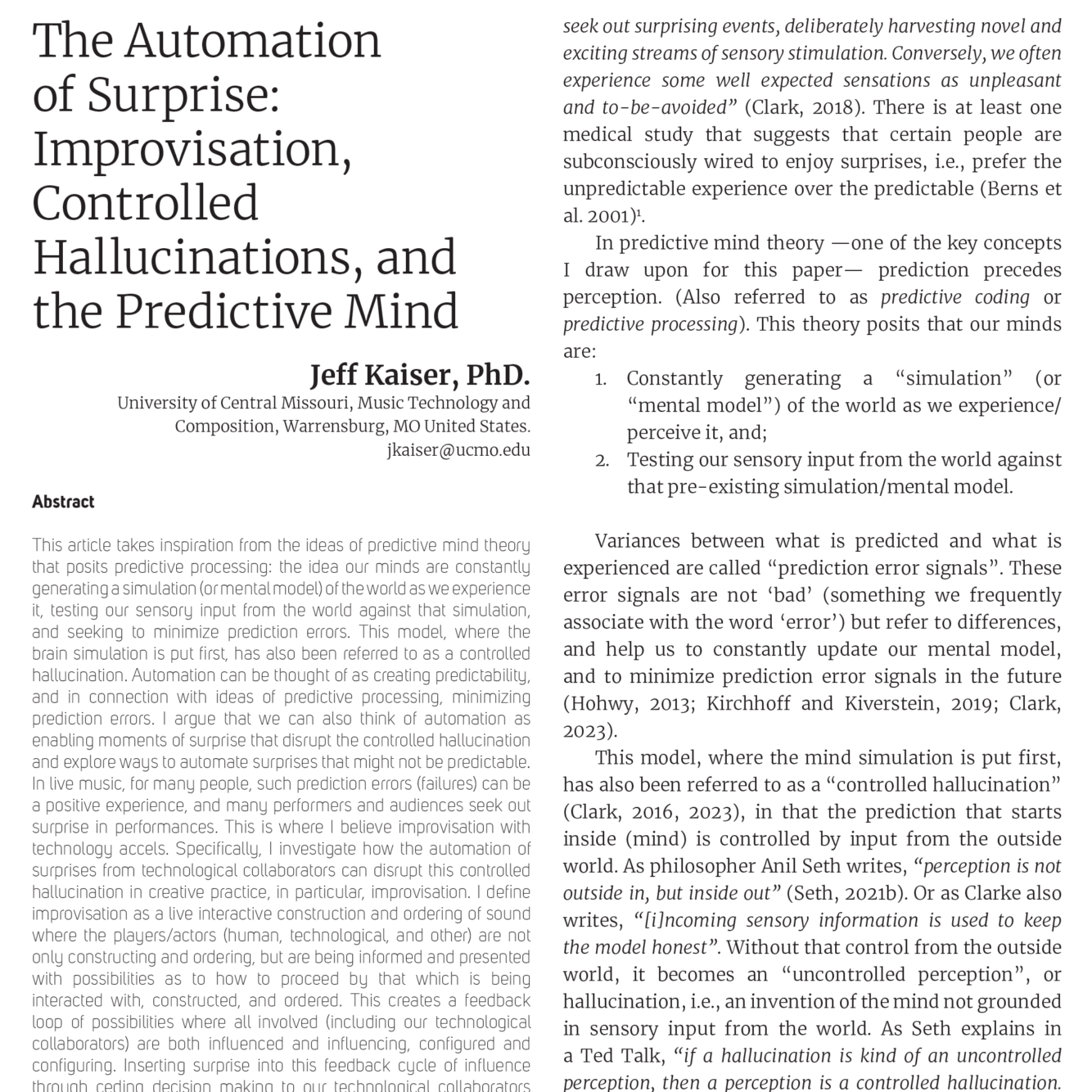Author:
Jeff Kaiser
Title:
The Automation of Surprise: Improvisation, Controlled Hallucinations, and the Predictive Mind
Abstract:
This article takes inspiration from the ideas of predictive mind theory that posits predictive processing: the idea our minds are constantly generating a simulation (or mental model) of the world as we experience it, testing our sensory input from the world against that simulation, and seeking to minimize prediction errors. This model, where the brain simulation is put first, has also been referred to as a controlled hallucination. Automation can be thought of as creating predictability, and in connection with ideas of predictive processing, minimizing prediction errors. I argue that we can also think of automation as enabling moments of surprise that disrupt the controlled hallucination and explore ways to automate surprises that might not be predictable. In live music, for many people, such prediction errors (failures) can be a positive experience, and many performers and audiences seek out surprise in performances. This is where I believe improvisation with technology accels. Specifically, I investigate how the automation of surprises from technological collaborators can disrupt this controlled hallucination in creative practice, in particular, improvisation. I define improvisation as a live interactive construction and ordering of sound where the players/actors (human, technological, and other) are not only constructing and ordering, but are being informed and presented with possibilities as to how to proceed by that which is being interacted with, constructed, and ordered. This creates a feedback loop of possibilities where all involved (including our technological collaborators) are both influenced and influencing, configured and configuring. Inserting surprise into this feedback cycle of influence through ceding decision making to our technological collaborators (what in the past was solely the domain of our human collaborators) through a variety of methods including probability-based algorithms and what I call "deep sonification", now includes our technological collaborators.
Links to the full article (free):
Download Article, The Automation of Surprise: Controlled Hallucinations, and the Predictive Mind.
Citation:
